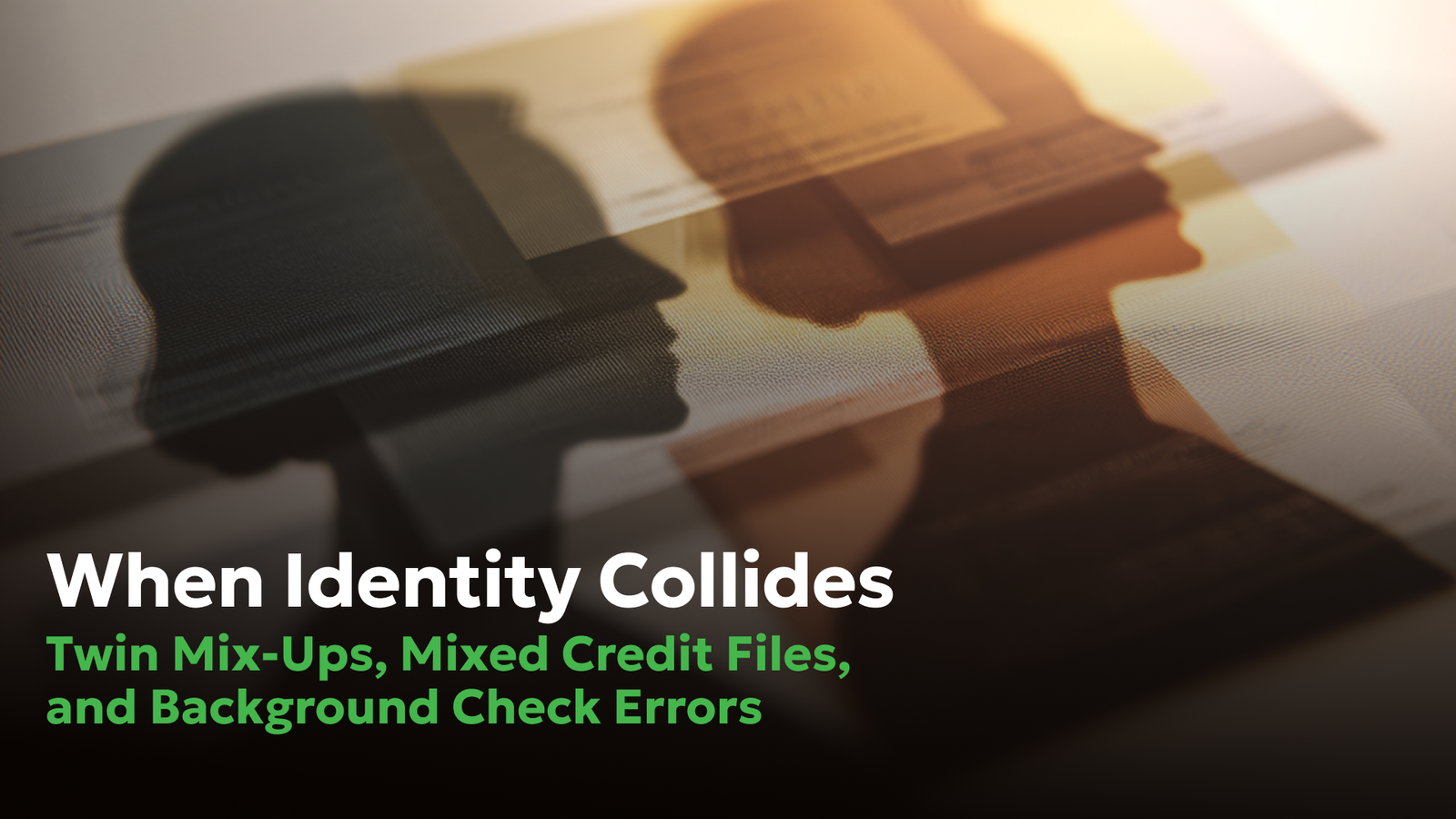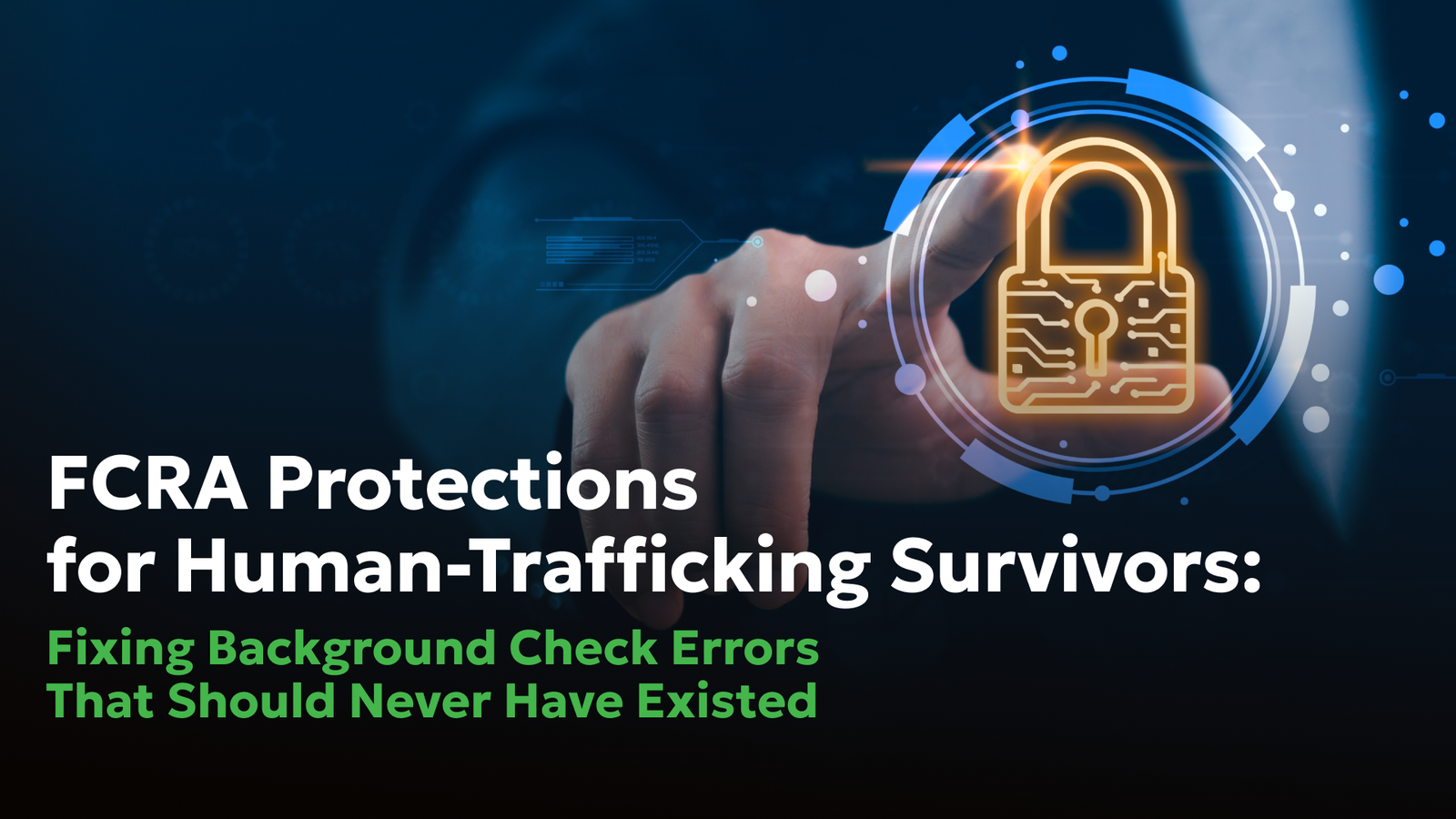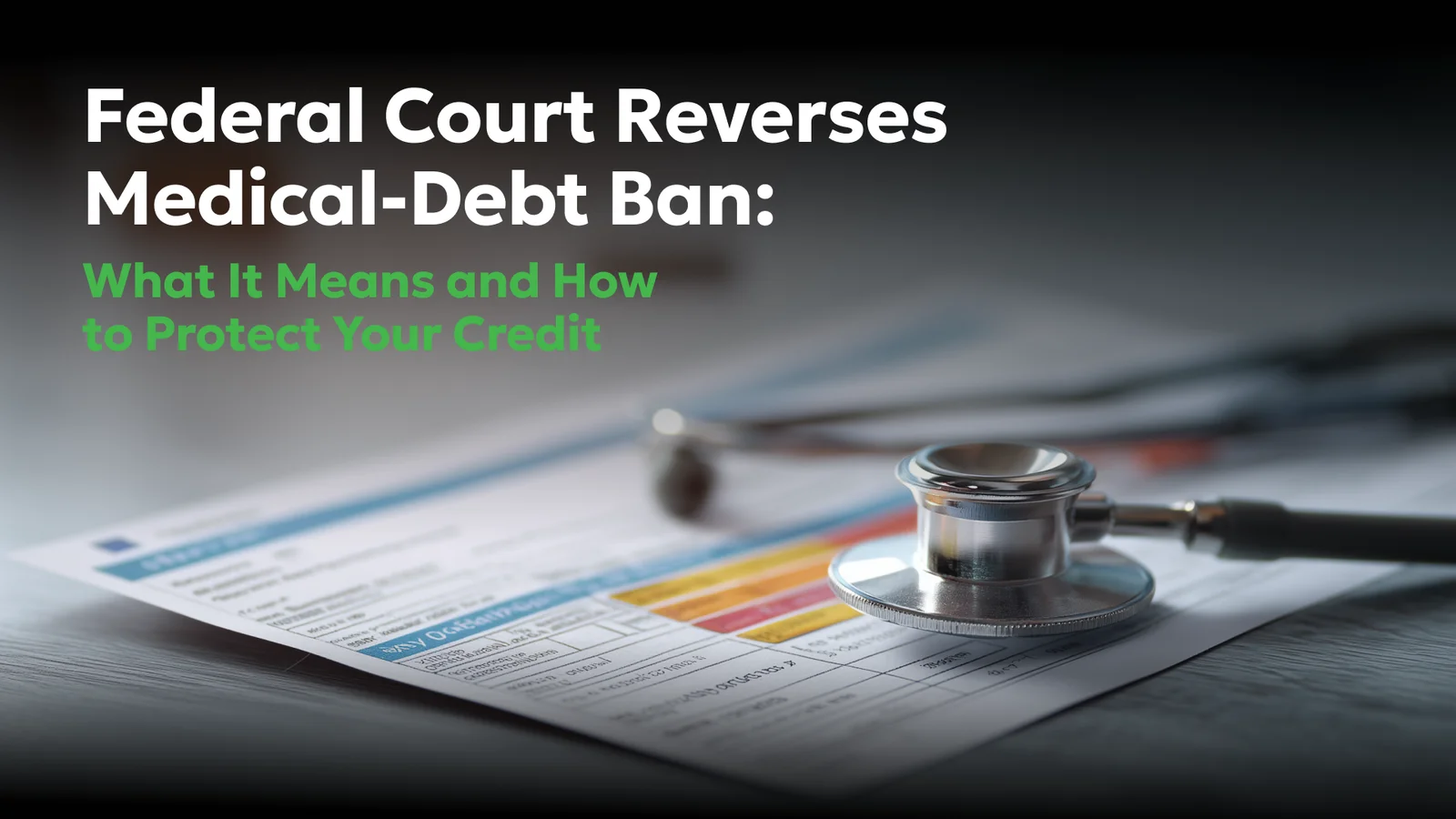How to Sue Experian for Ignored Credit Report Dispute
- Blog
- Credit Reporting Inaccuracies
How to Sue Experian for Ignored Credit Report Dispute

Creditworthiness in Modern Life Is Veryyy Important, that Is why Mistakes on Credit Reports Have a Severe Impact on Consumers
Is Experian ignoring your dispute or refusing to correct inaccurate, misleading, or false information in your credit report? When this happens, it can leave you feeling powerless to protect your creditworthiness and your rights. We explain the dispute process, what your rights are, and how to sue Experian when it won't do the right thing.
If you’re wondering how to sue Experian, then you have likely already learned that inaccuracy in Experian’s reporting can be a life-changing event for those consumers impacted by it. In fact, inaccurate, misleading, and false information in an Experian credit reporting can completely derail your financial life, tank your plans, and leave you emotionally distraught and overwhelmed. And eager to file a lawsuit against Experian.
When you do everything right to dispute credit report, and Experian ignores the dispute, refuses to correct the errors, or validates the false information as true after an inadequate or shoddy investigation, you’re left feeling defeated, depleted, and desperate. Thankfully, consumer protection attorneys handle these kinds of Experian situations every single day, know how to initiate an Experian lawsuit, to get you back to good and make you financially whole again.
At Consumer Attorneys, our lawyers have helped thousands of consumers sue Experian for credit reporting errors and its failure to follow the law. I will walk you through the legal landscape on this issue so that you understand the full extent of the problem, your rights under the FCRA, and how to file a lawsuit Experian won’t be able to ignore. We also address whether you should join an Experian class action lawsuit.
What are Your Rights?
Consumer protection law is a broad practice area that includes an enormous amount of issues arising out of credit reporting errors. While numerous federal and state laws regulate the buying, selling, and reporting of consumer data, the Fair Credit Reporting Act (FCRA) is the most critical piece of legislation and most relevant to anyone looking to sue Experian over a data dispute.
The FCRA requires that the CRAs and data furnishers use “reasonable procedures to assure maximum possible accuracy.” This should mean that Experian uses precise and accurate methods for gathering, reviewing, and reporting data, including well-conceived algorithms and well-trained human review as needed. It should also mean that Experian disputes are adequately and thoroughly investigated and errors are corrected timely.
However, as you know, this is frequently not the case and consumers are forced to sue Experian to enforce the data standards set out under the FCRA.
Along with placing this obligation on Experian, the FCRA also gives you the right to:
- Obtain a copy of your Experian credit report. You are entitled to a copy of the Experian (or other CRA) report run when a credit check is completed as part of a transaction or opportunity. You are also entitled to request a free copy annually from each credit bureau, including Experian.
- Determine who can view your files. You must be notified that a credit check will take place and that a decision will hinge on the results. You also have to authorize a company to run an Experian (or other CRA) credit check.
- Know when data is being used against you. If an adverse decision is made (a decision that goes against your interests) based on data in an Experian credit report, you have the right to know which information was used to deny you the opportunity in question (mortgage approval, auto financing, rental house, job opportunity, etc.).
- Dispute errors in your Experian credit report. If Experian or any other CRA includes inaccurate, misleading, or false information about your credit history, profile, or score, you have the right to dispute the error and have it corrected.
- Compensation. You are entitled to sue Experian to receive compensatory and punitive damages if Experian (or other CRAs, data furnishers, or other third-party companies) demonstrated intentional negligence by not properly reporting, investigating, or addressing disputes.
What Does an Experian Credit Report Include?
An Experian credit report includes information provided by data furnishers and other third-party entities pertaining to your credit history.
Data furnishers are the companies that you recognize and deal with regularly. They include such entities as credit card companies, banks and lenders, insurance and healthcare companies, service providers, and debt collectors.
Experian credit reports can include such things as:
- Personal identifiable information: birthdate, prior address, spouse, employers, etc.
- Account and payment information: account holder name, payment terms, payment amounts, missed and late payment history, and account status.
- Financial situations: foreclosures, collections, repossessions, bankruptcies.
- Hard and soft credit inquiries: both appear on your report, though only hard inquiries will impact your credit score.
Experian credit reports do not include such things as:
- Specific medical information: For instance, diagnoses, medical history, or prescription info. However, some extent of medical history may be revealed if accounts or debt are held at medical providers, hospitals, etc.
- Criminal history
- Public records (with the exception of bankruptcy info)
Is There an Error on Your Experian Credit Report?
If you've discovered or been notified of inaccurate, misleading, or false information on your Experian credit report, you need to act quickly. You may need to sue Experian, and we recommend taking the following actions to maximally protect your rights:
The lawyers practicing in this area of the law may also be called credit reporting lawyers. Before filing a dispute with Experian, if you can discuss your situation with an attorney, they can help guide and advise you on every step of the dispute and correction process. And they will know if and when it's time to sue Experian for data mistakes.
Remember, you have the right to review any credit report that is run on you, and you have the right to know exactly which information was used to make an adverse decision against you. Once you know that Experian included incorrect information, you should conduct a thorough review to ensure you have identified all of the disputed data. Additionally, we recommend requesting and reviewing your credit reports from the other two credit bureaus, not just Experian. Sometimes, data errors will only appear on your Experian profile, but other times, these errors are present across the profiles from all three credit bureaus. If you ultimately need to sue Experian, you may also sue other credit bureaus.
See below for more information on how to dispute credit errors and mistakes with Experian. Following the protocol and providing the required documentation is key in the event that you have to sue.
If you have not done so by this point, contact lawyers that sue Experian. See below for more detail on how to sue Experian for credit errors and mistakes when Experian ignores your dispute or refuses to correct inaccurate, misleading, or false information in your credit report.
Experian Credit Report Mistakes Disputes
When confronted with an adverse decision based on wrong information in an Experian credit report, whether you choose to work with lawyers that sue Experian or go it alone, you may have to formally file an Experian credit dispute. A dispute is necessary if the error originates with a data furnisher. (See below to learn about the different reasons you can sue Experian for data errors.)
The FCRA requires CRAs, such as Experian, to provide methods for consumers to dispute the data in their credit profiles. Once you file a dispute with Experian, Experian is required to investigate and respond within a statutorily determined window of time. Practically, this means that the law requires Experian to investigate and respond to your dispute within thirty days. There are, of course, exceptions and scenarios that pro-long or extend this statutory response period.
If you’ve already visited the Experian website, then you know that Experian provides information on how to file a dispute regarding inaccurate, misleading, or false information. How to Dispute Credit Report Information - Experian. Specifically, Experian provides three methods for filing a dispute:
- The online method. This requires using a link and following the directions to file a dispute through their online platform called the Experian Dispute Center.
- The phone method. Notably, Experian does not provide the phone number for filing disputes but directs you to find the phone number on your Experian credit report.
- The postal method. This involves sending everything via the mail. We recommend using certified mail. See below for more information on why that is.
Experian informs you that the fastest and easiest method for submitting a dispute is using the online platform. While that may be true, we do not recommend using this method. Using the online platform to submit the dispute and any supporting documentation typically requires waiving your legal right to sue Experian. This favors Experian entirely and does not favor your interests at all.
We recommend filing your Experian dispute via certified mail so that you can carefully track Experian’s receipt of the dispute and documentation and fully preserve your right to sue Experian if your dispute is ignored, poorly investigated, or not corrected.
As discussed above, Experian credit disputes are typically completed within thirty days, depending on various factors. However, this time frame only accounts for the length of time it takes Experian to investigate and respond to your dispute. So, this is only an accurate reflection of the time expectations if Experian includes accurate information.
If you find that your Experian credit profile still contains errors, even after they investigated your dispute, then you will likely have to sue Experian to correct your data, salvage your financial and emotional well-being, and get compensation.
Sue Experian for Errors and Unsettled Disputes
If you are far enough along in this saga that it’s clear you need to sue Experian, then you also need to understand what types of things you can sue Experian over. The FCRA carves out two ways that Experian can be liable: failure to adequately investigate disputed data and failure to use reasonable procedures to prevent inaccurate data. Let’s take a look, below are some Fair Credit Reporting Act violation examples and ways to resolve its.
Sue for Disputed Errors
Under the FCRA, when you dispute erroneous information provided to Experian by a data furnisher or other third party, then Experian must conduct a reasonable investigation to determine the accuracy of the disputed information. So if your Experian credit profile includes inaccurate, misleading, or false data that you have disputed using all of the proper channels, but Experian fails to adequately investigate or correct the errors, you can sue for compensation and error correction.
Sue for Errors Even Without a Dispute
The FCRA also requires that Experian use reasonable procedures “to assure the maximum possible accuracy” of the information it includes in your credit profile. So, if the errors in your Experian profile are the result of a mixed file, a misrepresented public record, or a false deceased indicator, you can sue Experian simply for reporting the error, whether or not it has been disputed. This is because Experian would have picked up on the discrepancies and inconsistencies had it used reasonable procedures to assure maximum possible accuracy.
Sue for Identity Theft-Related Errors
Can you sue when someone commits identity theft and fraud using your accounts? When this happens, consumers desperately search things like: “Someone is using my social security number, can I sue Experian?” or “Can I sue Experian for unauthorized charges on my credit card?” or “Can I sue Experian for phony charges?”
In other words, can you sue Experian for failing to investigate and correct data that ties directly to your current accounts but which you allege is the product of identity theft and fraud? The answer is yes, but you can only sue for their role in failing to adequately investigate and correct the fraudulent transactions.
Should I Join a Class Action Lawsuit Against Experian?
You may see ads for an Experian lawsuit sign up. Is there a class action lawsuit against Experian? Yes. There are several Experian class action lawsuits happening right now. In a class action lawsuit, Experian defends itself against hundreds, even thousands, of plaintiffs who allege Experian did something wrong. For example, Experian just settled one class action lawsuit where Plaintiffs alleged Experian sent wrong residential information to lenders. Experian settled for $22.45 million and each class member received $178.
We suggest suing Experian on your own, in a lawsuit against Experian where we represent you. The FCRA imposes fines of up to $1,000 for each violation a CRA commits. Additionally, the court can impose actual and punitive damages. These can be substantial. Contact us to find out more.
If you notified the credit card companies, the Social Security Administration, and any other relevant entity that the credit card charges or use of your Social Security Number are fraudulent, and you’ve notified the proper authorities, then Experian is still accountable for investigating and correcting those errors on your credit profile. See our article on Identity Theft Lawyers for a detailed discussion of how to recover from this type of financial crime.
If Experian fails to correct your credit profile despite you having taken all of the necessary steps to notify the authorities, account holders, and CRAs about the criminal activity, then you can sue Experian.
Should You Sue Experian in Small Claims Court?
Some consumers wonder if they can sue Experian in small claims court. The answer is yes, but it is not recommended. First, the parameters for small claims court are usually very limiting and differ significantly from state to state. The idea of small claims court is that the compensation sought and received must be below a certain statutorily determined dollar value.So, even if you could be entitled to substantial financial damages, if you sue in small claims court you may sharply limit the compensation you can seek and receive.
Second, when going up against Experian, one of the nation’s largest and most powerful CRAs, you should sue in a traditional court of law with the backing of an experienced and knowledgeable attorney to bolster your claim and increase your chances of achieving a successful outcome.
After all, if you’re at the point of needing to sue Experian, then you already know that the scales are tipped against you in this power dynamic and Experian is showing no signs of doing the right thing. If you’re going to sue, you shouldn’t just sue to win, you should sue to win big.
Lawsuits Against Experian
We have helped thousands of clients fight back against Experian and other CRAs that ignore disputes, conduct inadequate investigations, and fail to make sufficient error corrections. The examples below highlight some of our successes in taking on Experian on behalf of our clients.
Danny S. v. Experian (California) - False Deceased Indicator
While working toward improving his credit at the beginning of 2021, Danny discovered that Experian says he was deceased on his Chase account. Because of the inaccurate notation, Danny's FICO score could not be calculated. Despite disputing the error with Experian multiple times, Experian still provided several lenders with this false information. As a result, Danny had a hard time financing a car and was denied a new credit card. We sued Experian and a bank that flagged him as dead and won him two five-figure settlements.
Jerald B. v. Experian (Colorado) - Inaccurate Account and Payment Info
After filing for bankruptcy, Jerald increased his creditworthiness to get approved for a mortgage. However, after successfully receiving mortgage pre-approval, he received a letter stating that his credit score had dropped significantly. He learned that Experian, Equifax, and TransUnion reported an open account on which he was making regular payments as "closed” and discharged due to bankruptcy. Jerald was forced to close his mortgage pre-approval and was denied further housing opportunities. We settled out-of-court for a cash award that enabled him to have much better housing options going forward.
Elizabeth G. v. Experian (Wisconsin) - Mixed Files
In 2023, Elizabeth noticed that her Experian credit score was nearly 200 points lower than her score from the other credit bureaus. After requesting and reviewing her Experian credit profile, she discovered that only one of the accounts being reported belonged to her, and the rest belonged to someone else. In addition, the other person’s Social Security Number was reported as Elizabeth’s, so we can say that her credit report was mixed with someone else's. The profiles from the other credit bureaus were accurate. Following Elizabeth’s dispute of the erroneous information, Experian conducted an inadequate investigation, informing her that the disputed information was accurate and failing to unmix the data. With our guidance, Elizabeth sued Experian, seeking compensation and error corrections.
Advantages of Working with Consumer Attorneys
When you get hit by credit reporting mishaps and start to research companies that can help, you’ll find plenty of credit repair companies that name a fixed price. When you sign a contract with these companies, they’re guaranteed to get your money, but you aren’t guaranteed a successful result. If that doesn’t sound fair, it’s because it isn’t.
Most often, this is a scam that preys on people in your situation, costing you time and money and usually ending with you still having errors in your credit profile.
When you work with Consumer Attorneys to solve your credit repair problems, we work within the legal framework of the FCRA, which states that we aren’t allowed to take money from you for our services. Instead, the companies we sue pay all of our attorney’s costs and fees, and we only get paid if we win. You will never pay us any money out of pocket.
So, unlike those credit repair scams, we have an incentive to protect your rights, solve your problems, and win! We’re not just another company looking to cash in on your problem, we’re on your team. And like any team, none of us win unless all of us win.
Let our expertise power your win today!
Ask for Our Help Now!
Power Up Your Knowledge. Assemble Your Team. Let`s Do This.
Frequently Asked Questions
As soon as you understand that Experian is reporting inaccurate, misleading, or false information about you, contact a consumer protection attorney. Your attorney will guide you through the dispute process and advise you when it is appropriate to sue Experian for failing to respond, investigate, and correct the erroneous data. The dispute process involves formally challenging the information and submitting any required documentation. The law dictates the time period in which Experian must respond. In some instances, it is also possible to sue Experian for simply reporting the incorrect information in the first place.
You can also sue Equifax and Transunion for incorrect credit reports.
To sue Experian, you should work with a consumer protection lawyer, sometimes referred to as a credit reporting lawyer. Consumer protection attorneys are highly experienced in all legal matters arising under the Fair Credit Reporting Act (FCRA) and related legislation. The consumer protection lawyers at Consumer Attorneys have represented clients across the full scope of credit reporting issues and have seen, heard, and dealt with every stall, excuse, and roadblock that Experian has offered in lieu of doing the right thing. We know the FCRA. We will hold Experian accountable, protect your rights, and seek compensation for your financial and emotional damages.


Daniel Cohen is the Founder of Consumer Attorneys. Daniel manages the firm’s branding, marketing, client intake and business development efforts. Since 2017, he is a member of the National Association of Consumer Advocates and the National Consumer Law Center. Mr. Cohen is a nationally-recognized practitioner of consumer protection law. He has a we... Read more
Related Articles




R
ONGS™You pay nothing. The law makes them pay.






